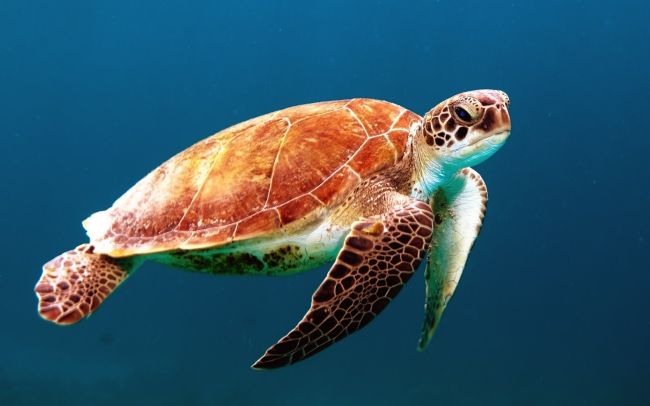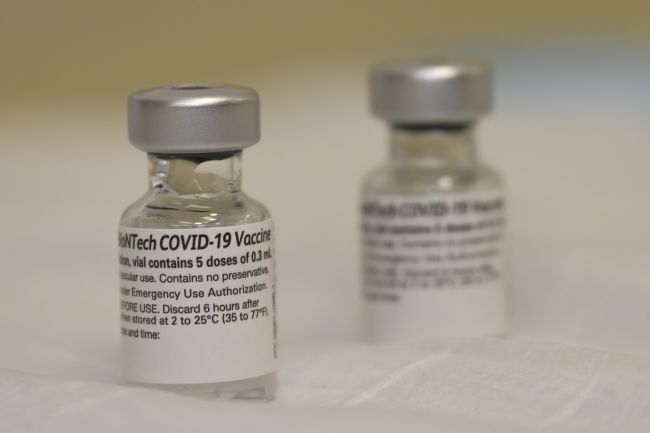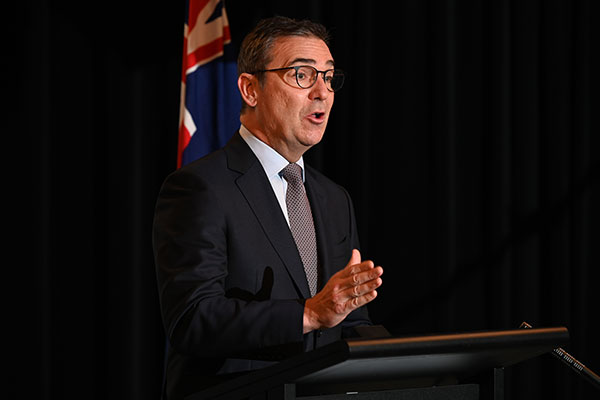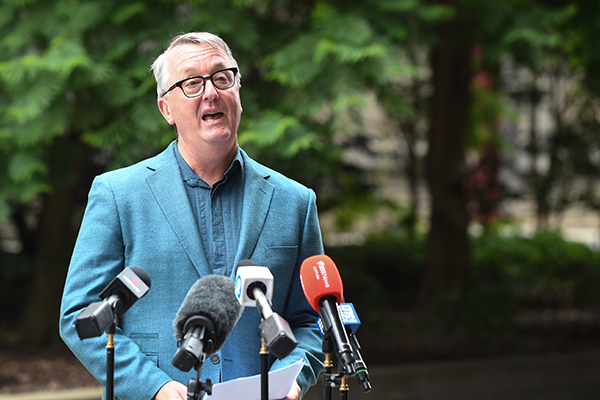Selected
- Details
- Written by Grant Broadcasters
- Category: Selected
- Hits: 117

A turtle is found dead on average every 20 days in a shark net lining beaches in and around Sydney, new data shows.
The annual report on 51 shark nets running from Newcastle to Wollongong shows 40 of the 375 animals found dead or alive in nets in the latest season were its target species: white, bull and tiger sharks.
It was more common to find southern eagle rays (95), smooth hammerheads (60) and bronze whalers (38).
While most rays are released alive, the vast majority of other animals caught were dead by the time they're found.
That includes all five dolphins found during the eight-month season, as well as a fur seal trapped at Bondi.
Twelve of the 18 turtles caught also died, including an olive ridley sea turtle at Bronte, several on Sydney's northern beaches and several more on the Central Coast.
Bull sharks, most of which died, were found at beaches including Avalon, McMasters, The Entrance and Thirroul.
The figures didn't raise red flags under the program's key performance indicators, being in line with or lower than previous seasons' catches.
For the third year in a row, there was no fatal or serious injury at a meshed beach - with 10 confirmed interactions over that time.
About 5.6 million people visited patrolled beaches in the netting zone between September 1 and April 30.
NSW has recently introduced several alternative beach protection strategies, including drone surveillance and "SMART" drumlines using regular surveillance.
Those solutions, combined with education programs and personal shark deterrents, were more technologically advanced and appropriate, Humane Society International Australia and the Australian Marine Conservation Society said on Monday.
"The indiscriminate deaths that occur as a result of the outdated Shark Meshing Program in NSW must end," HSIA marine biologist Lawrence Chlebeck said.
"The technology is nearly 100 years old, we would never accept safety technology that old in any other facet of our lives, why should ocean safety be any different?"
© AAP 2021
Image Credit: Wexor Tmg wexor, CC0, via Wikimedia Commons
- Details
- Written by Grant Broadcasters
- Category: Selected
- Hits: 137

A Sydney nurse says she was sacked for giving soon-to-be expired doses of Pfizer vaccine to her daughter and two nephews.
The woman was working for a contractor hired to administer vaccines in aged care facilities when she used three leftover doses that would otherwise have been discarded, she told a Sydney radio station on Monday.
Each family member was eligible to receive Pfizer, she said.
"I believe I did the right thing," Christine, who didn't give her last name, told the Sydney radio station.
"I mean part of the code of conduct is to be smart and cost-effective."
The federal government's excess dose policy dictates what should occur in the event of excess doses.
It states doses should be used on residents able to provide on-the-spot consent, before vaccine workforce provider staff, the facility's staff, residents' family members or carers and any other regular visitors to aged care facilities.
Her former employer, Healthcare Australia, said the woman was terminated for failing to comply with current health department protocols.
"In the event that there is still excess that cannot be used on eligible individuals as determined by the Commonwealth, HCA follow the government policy for disposal," a spokeswoman said.
NSW's chief medical officer said she wasn't in a position to know about the case, and declined to comment on whether the nurse should be reinstated.
"All I would like to stress is I do not want any wastage of Pfizer," Dr Kerry Chant told reporters on Monday.
About 460,000 shots were administered in NSW last week.
The proportion of the state's population aged over 15 with at least one dose - the group used for federal government targets - rose last week from 37 per cent to 41 per cent.
© AAP 2021
Image Credit: U.S. Secretary of Defense, CC BY 2.0 <https://creativecommons.org/licenses/by/2.0>, via Wikimedia Commons
- Details
- Written by Grant Broadcasters
- Category: Selected
- Hits: 119

South Australians in Queensland have been urged to consider returning as soon as possible as the Sunshine State continues to battle a COVID-19 outbreak.
With southeast Queensland in lockdown, SA residents are still allowed to return provided they spend 14 days in home quarantine.
But Premier Steven Marshall says that may change in the coming days and local residents may face tougher restrictions including the need to seek a special exemption to return.
"People need to be thinking now about whether they should be staying in Queensland or coming back," the premier said on Monday.
SA's transition committee has also resolved to ease some local coronavirus restrictions from Thursday including a change to a general density requirement of one person to every two square metres.
Sports competition can also resume but SA will keep its mask-wearing rules for high-risk settings, high schools and most public places, including shopping centres.
Family gatherings will continue to be limited to 10 people and weddings at funerals will stay at 50 people.
The changes come after SA stared down its own cluster of 21 COVID-19 infections, sparked two weeks ago after a man returned from Argentina and tested positive.
Mr Marshall said it was still possible for more cases to emerge but SA was in a much different position than it was when the outbreak emerged.
He said that was the result of SA's decision to "go hard and go early" with a week-long statewide lockdown.
"We are still concerned. Yes, it has been 14 days. But If we have missed any cases in South Australia we would be picking them up around about now," the premier said.
"So we really do need to be a little bit careful these next couple of days."
© AAP 2021
Photo: South Australia Premier Steven Marshall (AAP Image/Pool, Naomi Jellicoe)
- Details
- Written by Grant Broadcasters
- Category: Selected
- Hits: 105

Victoria is tightening the NSW border bubble, banning non-essential movement across state lines over the threat of Sydney's worsening COVID-19 outbreak.
From 11.59pm on Tuesday, border bubble residents will only be able to cross state lines for six reasons including medical care, compassionate reasons, work, education, playing sport or getting vaccinated.
The new measure only applies to the NSW-Victorian border bubble residents.
Residents crossing from either side must also not travel any further than necessary for that purpose.
"If you're from Albury, please don't shop in Wangaratta, Werribee or Warrnambool if the essential reason for your travel can be attended to in Wodonga," Health Minister Martin Foley told reporters.
NSW cross-border residents have previously been able to travel into Victoria including Melbourne for any reason.
"I would have thought that Victorians will have been a little bit surprised that you could holiday, if you're in the border bubble on NSW side, in Lorne if you wanted to," Mr Foley said.
"Or that you could have shopped in Bourke Street, if you wanted to."
Mr Foley confirmed there were no coronavirus cases in any NSW local government areas in the border bubble, but insists the change is necessary due to the risk of the virus spreading out of Greater Sydney.
"We know that it will have an impact on many border residents, but we also know that an outbreak of the Delta variant on our doorstep will have an even more negative impact upon our border communities," he said.
Anyone caught crossing the border for a non-essential reason could face a $5452 fine.
Chief Health Officer Brett Sutton has also recommended Victoria abandon group booking limits for hospitality venues, tours and gyms, but density limits will remain.
Victoria has recorded two new local cases of COVID-19, both linked to the state's current outbreaks and in isolation for their entire infectious period.
The health department's deputy secretary Kate Matson said both were household contacts, one of last week's Moonee Valley traffic controller and the other of the AAMI Park outbreak.
There are 134 active cases in Victoria, eight of whom are in hospital including three in intensive care.
Another 1300 close contacts were cleared to leave isolation on Sunday.
Residents of a Richmond apartment block are among the fewer than 4000 close contacts still isolating across the state. All have returned an initial negative test but will continue to isolate for the full 14 days from exposure.
People who arrived from locked down southeast Queensland before it became a red zone on Saturday night will be phoned on Monday if they are yet to have their mandatory test within 72 hours.
They have also been asked to get a day seven test as an extra precaution.
More than 21,000 test results were received in the 24 hours to Monday morning, while about 15,000 vaccine doses were administered at state-run sites.
Victoria has changed its regime for rolling out Pfizer at state clinics to boost overall vaccination rates, moving second doses from three to six weeks from Monday.
© AAP 2021
Photo: Victorian Health Minister Martin Foley (AAP Image/Erik Anderson)
Page 165 of 191